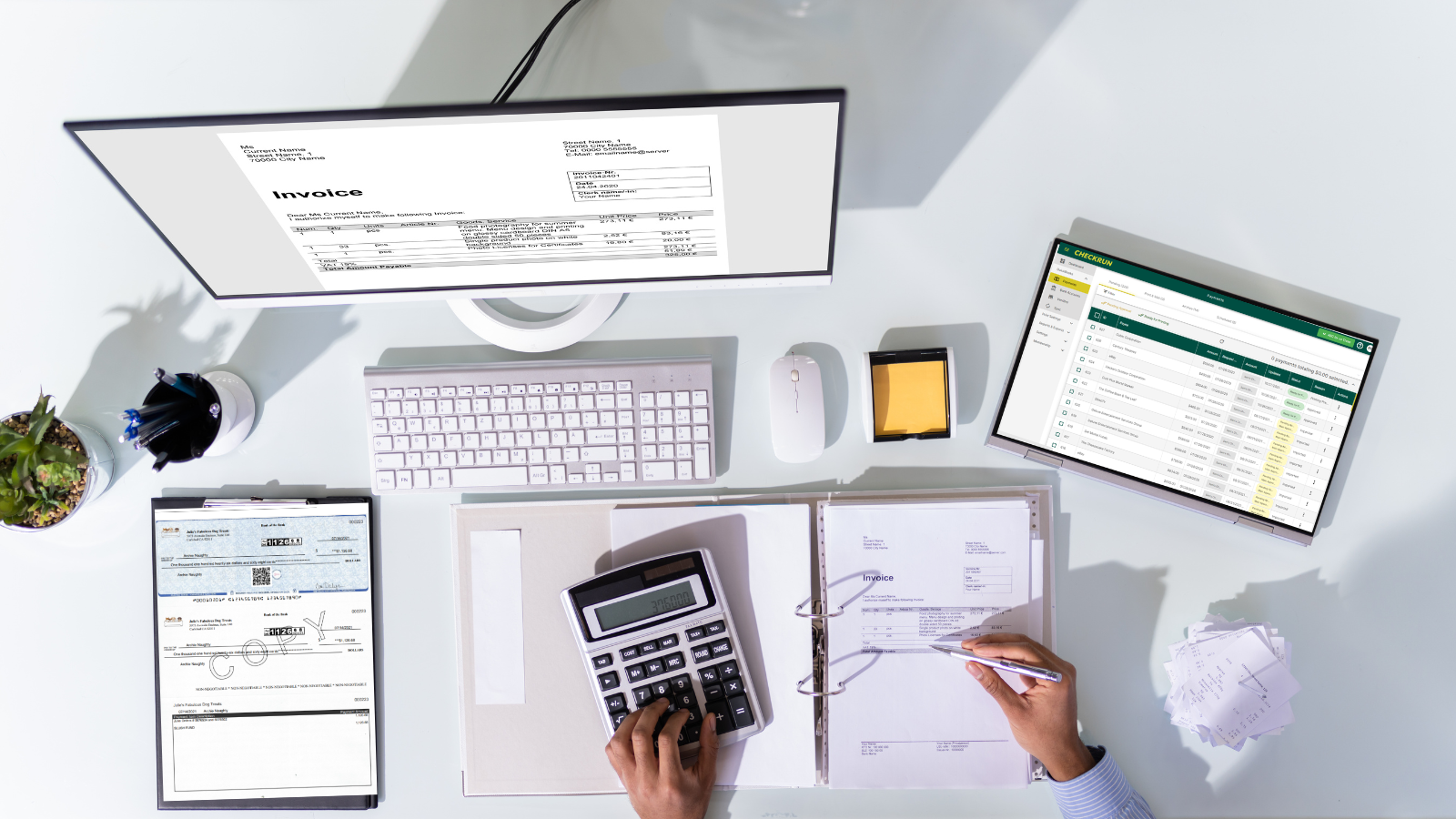Running a small business involves managing countless financial tasks, and one crucial process that every business owner should understand is the check run. In this comprehensive guide, we’ll break down everything you need to know about check runs, from basic concepts to implementation strategies that will streamline your payment processes.
What is a Check Run in Accounting?
A check run is a scheduled process where a business processes and issues multiple checks at once to pay vendors, suppliers, or employees. Instead of writing individual checks throughout the month, many businesses opt to consolidate their payment processing into organized batch sessions, typically performed weekly or bi-weekly.
Why Check Runs Matter for Small Businesses
Check runs are more than just a basic accounting task – they’re a crucial component of efficient business operations. Here’s why they matter:
- Time Management: Processing multiple payments at once saves valuable time compared to handling individual transactions throughout the month.
- Better Cash Flow Control: Regular check runs help you maintain a clearer picture of your cash flow and better predict your account balances.
- Improved Vendor Relationships: Consistent payment schedules help maintain good relationships with suppliers and service providers.
- Enhanced Record-Keeping: Batch processing makes it easier to maintain organized payment records and track expenses.
Setting Up Your Check Run Process
Step 1: Establish a Schedule
Choose a frequency that works for your business – weekly, bi-weekly, or monthly. Consider:
- Your cash flow patterns
- Vendor payment terms
- Staff availability
- Banking cut-off times
Step 2: Organize Your Documentation
Before each check run:
- Gather all invoices due for payment
- Verify invoice accuracy
- Obtain necessary approvals
- Sort payments by due date
Step 3: Implement Controls
Establish these essential control measures:
- Separation of duties between check preparation and approval
- Documentation requirements for each payment
- Verification procedures for payment amounts
- Secure check storage protocols
Best Practices for Efficient Check Runs in Accounting
Documentation Requirements
- Keep digital copies of all invoices
- Maintain a payment approval log
- Document any payment adjustments
- Store copies of processed checks
Security Measures
- Use secure check stock
- Implement dual controls for large payments
- Regularly reconcile bank statements
- Monitor check sequence numbers
Technology Integration
- Consider accounting software with check printing capabilities
- Use digital payment methods when possible
- Implement automated approval workflows
- Maintain digital backup systems
Common Check Run Challenges and Solutions
Challenge 1: Missing Invoices
Solution: Implement a digital invoice management system and establish clear procedures for invoice submission and processing.
Challenge 2: Cash Flow Management
Solution: Create a payment calendar that aligns with your receivables schedule and maintain a cash buffer for unexpected expenses.
Challenge 3: Approval Bottlenecks
Solution: Set up an automated approval workflow with clear escalation procedures for time-sensitive payments.
Digital Alternatives to Traditional Check Runs
While traditional check runs remain common, consider these modern alternatives:
- ACH transfers
- Electronic funds transfers (EFT)
- Online bill pay services
- Virtual credit cards
Creating Your Check Run Calendar
Monthly Planning
- Set fixed dates for check runs
- Account for banking holidays
- Align with payroll schedule
- Consider vendor payment terms
Weekly Tasks
- Review upcoming payments
- Verify available funds
- Obtain necessary approvals
- Process payments
- Document transactions
Tips for Scaling Your Check Run Process
As your business grows, consider these strategies:
- Automate recurring payments
- Implement payment approval thresholds
- Create detailed process documentation
- Train backup personnel
- Regularly review and update procedures
Conclusion
A well-organized check run process is fundamental to maintaining healthy business finances. By implementing the strategies and best practices outlined in this guide, you can create an efficient payment system that saves time, reduces errors, and supports your business’s growth.
Remember that while check runs are traditional, they’re just one part of a modern payment strategy. Consider combining traditional check runs with digital payment methods to create a comprehensive system that works best for your business. Modern solutions like Checkrun can revolutionize how QuickBooks Online users handle their check payment processes.
Checkrun seamlessly integrates with QuickBooks Online to automate and streamline your entire accounts payable workflow. By leveraging Checkrun’s capabilities, you can:
- Eliminate manual check printing and signing
- Automate payment approvals
- Reduce payment processing time by up to 80%
- Maintain detailed audit trails
- Enable secure remote payment processing
- Prevent check fraud with advanced security features
The future of payment processing lies in combining efficient processes with innovative technology. Whether you’re writing occasional checks or processing hundreds of payments monthly, modernizing your check run process with the right tools can significantly impact your business’s efficiency and bottom line.
Ready to Transform Your Check Run Process?
Don’t let manual check runs hold your business back. Take the first step toward modernizing your accounts payable workflow:
- Visit Checkrun.com to learn more about automated payment solutions
- Schedule a free demo to see how Checkrun can streamline your specific payment processes
- Start your 15-day free trial to experience the benefits of automated check runs firsthand
Contact Checkrun today and discover how you can save time, reduce errors, and improve your business’s payment operations.

Frequently Asked Questions
How often should I schedule check runs?
The frequency depends on your business volume and cash flow patterns. Weekly or bi-weekly check runs are common for small businesses.
What documentation should I keep for each check run?
Maintain copies of invoices, approval records, check images, and any relevant correspondence regarding payments.
Can I combine check runs with digital payments?
Yes, many businesses use a hybrid approach, processing some payments via check and others through digital methods based on vendor preferences and efficiency.



